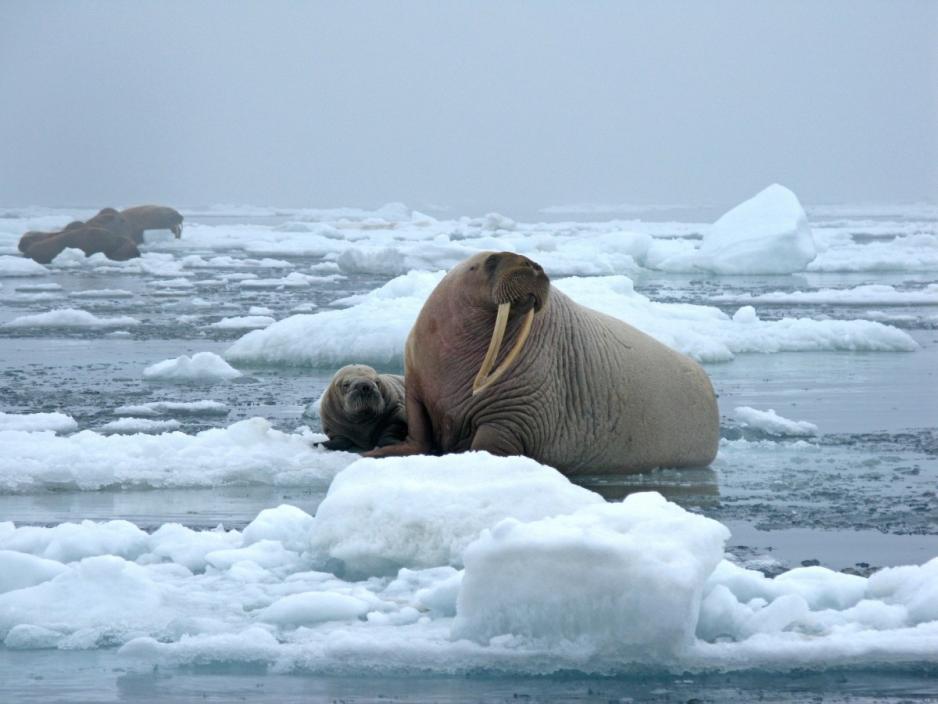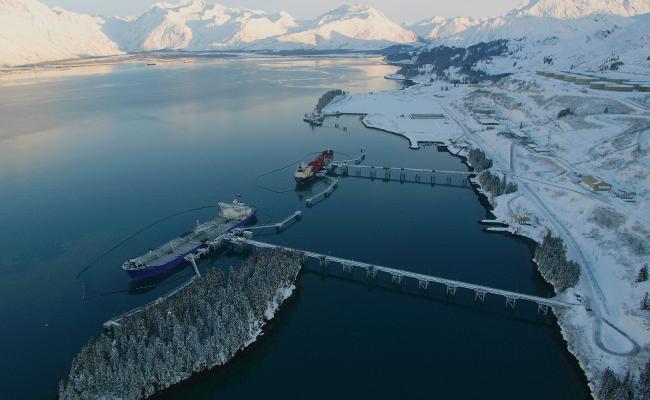US Arctic Research Consortium Shuts Down

The Arctic Research Consortium of the United States (ARCUS) shuts down this month after having its funding slashed earlier this year. It is one of many research institutions to be impacted by cuts in funding this year, including the National Oceanic and Atmospheric Administration. (Photo from the HANDS OFF NOAA Rally: Elvert Barnes via Flickr)
The Arctic Research Consortium of the United States will shut down this month after having its funding slashed earlier this year. The closure reflects the Trump Administration's move toward securitizing US Arctic research, according to Arctic researchers.
The Arctic Research Consortium of the United States (ARCUS) will close at the end of September 2025 after struggling to sustain its funding for years.
The nail in the coffin was the Trump Administration's decision to slash funding for the National Science Foundation by 56 percent, a foundation that stood for the majority of the consortium's funding.
Founded in 1988, the institution has served as a link between Arctic research and education, as well as across organizations, disciplines, geographies, sectors, knowledge systems, and cultures. On its website, the institution highlights its role as a 'globally connected Arctic research community with a strong emphasis on connecting US researchers.'
Its final information session took place on September 18th and revolved around the upcoming US National Plan for Arctic Research.
“ARCUS was formed in 1988 as the Cold War was ending and interest was rising in making the Arctic a more cooperative space. The previous year, Soviet Premier Mikhail Gorbachev had called for making the Arctic a “zone of peace,” and ARCUS contributed tremendously to that goal," says Mia Bennett, Associate Professor at the University of Washington, to High North News.
"Under its umbrella, universities and institutions in the U.S. engaged in Arctic research networked and pursued joint initiatives on topics ranging from developing and sharing sea ice predictions to organizing conferences and supporting Indigenous researchers to travel to Washington, DC to meet with legislators," she says, explaining the significance of the institution, adding that a disctinct feature of ARCUS was its direct link to Arctic communities.
"Its Sea Ice for Walrus Outlook, for instance, which offered weekly updates of sea ice, weather, and walrus conditions in the Bering Strait in spring, was widely used – and informed – by walrus hunters in Alaska. Such efforts are now at risk of collapse."

ARCUS managed the Sea Ice for Walrus Outlook, which served as a collaborative, community-informed resource providing weekly spring sea-ice reports for Alaska Native subsistence hunters, coastal communities, and others interested in sea ice and walrus in the northern Bering and southern Chukchi Seas. (Photo: pxhere)
Attack on research
After his inauguration in January, US President Donald Trump has carried out an extensive attack on research and education across the country.
The Trump Administration, spearheaded by DOGE and Elon Musk, removed thousands of federal workers from their positions, many of whom were scientists, such as those at the National Oceanic and Atmospheric Administration.
The development is taking place at a critical time for the Arctic region, where average temperatures continue to rise at three times the global average. High North News has previously reported on what this could entail for Arctic research, as well as Chinese influence in the region.
Securitization of Arctic research
The closing of ARCUS reflects recent developments, which is pivoting US Arctic research toward a much stronger focus on security and energy development.
"The closure of ARCUS underscores the US government’s misguided turn away from supporting Alaskan communities, Indigenous Peoples, science, and climate research, and instead towards issues of national security, the military, and extraction," says Bennett, adding:
"Yet these latter issues are in no way divorced from the former, which the Trump administration ignores at its peril. With the loss of organizations like ARCUS, along with the shuttering of the Wilson Center and its Polar Institute and the University of Minnesota’s Polar Geospatial Center, there will be fewer opportunities to gather Indigenous and local knowledge and instead more risks of making decisions without consulting communities – a turn which may breed resentment.”
Also read (article continues below)
Reason to expect more

Michael Walsh is an Affiliated Research Fellow of the Lasky Center for Transatlantic Relations at Ludwig Maximilian University of Munich.
Researcher Michael Walsh at the Ludwig Maximilian University of Munich says to High North News that the ARCUS shutdown could prove to be a canary in the coal mine for Arctic research institutions in the United States and that there is reason to expect that other Arctic research institutions will also shut down in the near future.
"Under the Trump Administration, there will almost certainly be a major shift in the selection and prioritization of policy drivers and priority areas for federally funded Arctic research. Look at the USARC report that was published in July. It seems like it is already happening," he says, referring to the US Arctic Research Commission's recent report.
He believes the new report showcases the Trump Administration's securitization of Arctic research, reducing US interests to "nothing more than our national safety and security interests."
"Given these changes, one should expect there to be other casualties among other prominent Arctic research institutions in the United States over the next few years," states Walsh.







